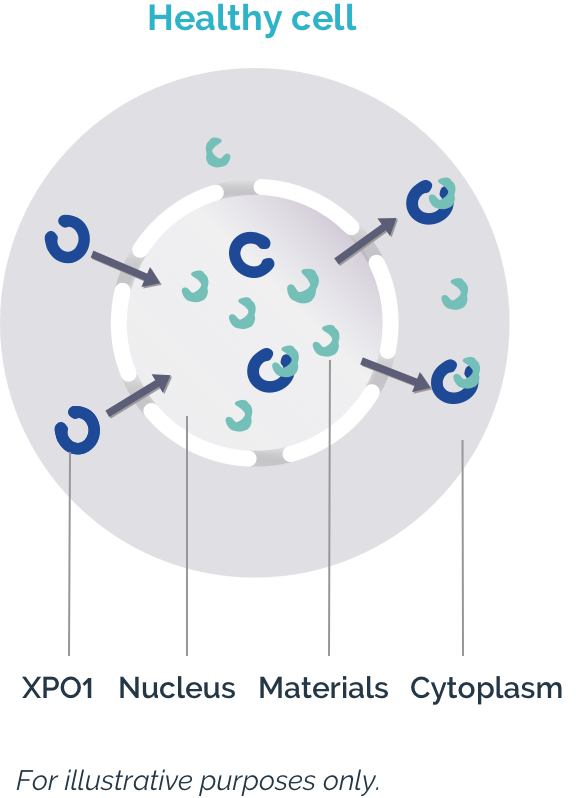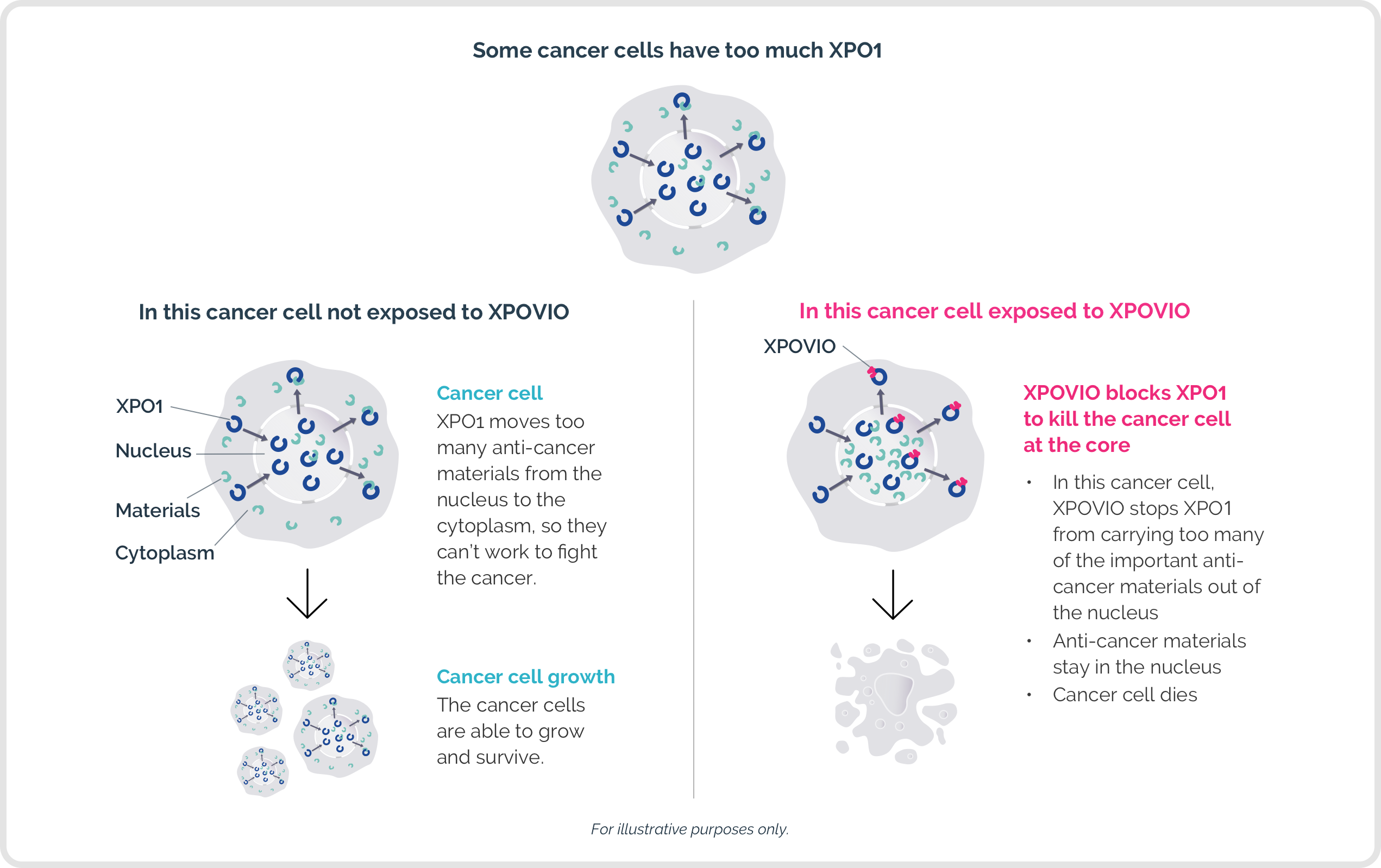Why XPOVIO® (selinexor)?
XPOVIO is the first and only FDA-approved oral medicine of its kind that may treat relapsed or refractory diffuse large B-cell lymphoma (RR DLBCL), even if other treatments no longer work for you.


You DO NOT have to go to
the hospital to take XPOVIO
You DO NOT have to take
XPOVIO with any other anti-cancer
RR DLBCL medication
XPOVIO is targeted therapy, NOT chemotherapy
The National Comprehensive Cancer Network® (NCCN) recommends selinexor (XPOVIO) for patients with RR DLBCL who have had at least 2 prior lines of systemic therapy and whose disease no longer responds to certain treatment options*
*Referenced with permission from the NCCN Clinical Practice Guidelines in Oncology (NCCN Guidelines®) for B-Cell Lymphomas. V.1.2023. © 2023 National Comprehensive Cancer Network, Inc. All rights reserved. Accessed February 9, 2023. To view the most recent and complete version of the NCCN Guidelines, go online to NCCN.org. NCCN makes no warranties of any kind whatsoever regarding their content, use, or application and disclaims any responsibility for their application or use in any way.
What is XPO1, and why does it matter?
XPO1 is a protein that maintains balance in healthy cells so they can function properly
- Cells have important anti-cancer materials that can only work in the cell’s core (the nucleus)
- XPO1 is a protein that carries these materials from the nucleus to another part of the cell (the cytoplasm)
- To keep the cell in balance, XPO1 only carries the right amount of anti-cancer materials out of the nucleus

How does XPOVIO work to block XPO1?


What is diffuse large B-cell lymphoma (DLBCL)?
DLBCL is a cancer that starts in B cells, a type of white blood cell. White blood cells are part of the immune system, which helps the body fight infection and disease. DLBCL can spread to other cells, organs, and tissues in the body.
What is relapsed or refractory DLBCL (RR DLBCL)?
RR DLBCL is cancer that has come back after treatment (relapse) or has stopped responding to certain treatments (refractory).
RR DLBCL is treatable.
When DLBCL relapses, your doctor may start you on another
type of treatment to help you get your disease under control
How will my healthcare provider treat RR DLBCL?
There are different options for treating RR DLBCL, including:
How will my healthcare provider and I choose a treatment?
You and your healthcare provider will decide together which treatments are right for you.